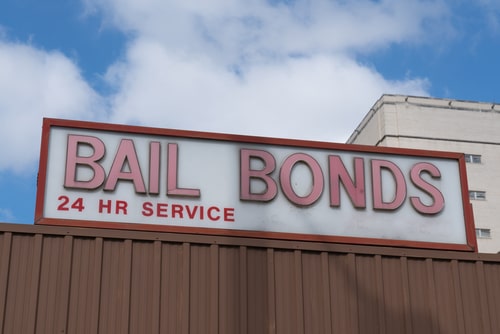Bail Bonds vs. Cash Bail: What is the Difference in Texas?
 When someone is arrested, the court will typically set a bail amount that allows the defendant to be released from jail while their case moves through the system. Defendants and their families then have two main options to meet the bail requirements: post the total bail amount in cash or use a bail bond. There are important differences to understand between these two methods of securing someone's release from jail. A Texas bail bondsman can help you determine which is ideal.
When someone is arrested, the court will typically set a bail amount that allows the defendant to be released from jail while their case moves through the system. Defendants and their families then have two main options to meet the bail requirements: post the total bail amount in cash or use a bail bond. There are important differences to understand between these two methods of securing someone's release from jail. A Texas bail bondsman can help you determine which is ideal.
How Bail Bonds Work
If the court sets your bail at $5,000, for example, you could pay the $5,000 out of pocket to the court to secure your release. However, many defendants do not have thousands of dollars in cash readily available. This is where a bail bond comes in.
A bail bond agent, also called a bondsman, can post a bail bond on your behalf in exchange for a percentage payment, usually 10% of the total bail amount. You pay 10%, or $500, and the bondsman puts up the full $5,000 bail for you, allowing for your release. The fee paid is nonrefundable.
Bondsmen also have the authority to make sure you go to your required court hearings. If you fail to appear as ordered by the court, called "jumping bail," the bondsman has both financial and legal incentives to locate and apprehend you.
Advantages and Disadvantages of Bail Bonds
Using a bail bond service allows you or your family to pay only a portion of the total bail set by the court and secures release from custody faster. However, a bondsman has legal authority over the defendant until the case is completed, including requiring check-ins and even physical apprehension and surrender if you fail to appear in court. The fee paid is also not returned, even if charges are dismissed or dropped.
Paying Cash Bail
Paying cash bail means providing the total bail amount set by the court, in cash, upfront. Using the earlier example of a $5,000 bail:
- You or family members deposit $5,000 cash with the court
- Once paid, you are released from custody
- The bail money serves as collateral to ensure you show up for future court dates
- If you attend all hearings as required, the $5,000 will be returned in full when the case ends
The main advantage of posting cash bail yourself is getting back the full bail amount when the case is completed. You also avoid bondmen's fees and contract stipulations. The court can withhold all or part of the returned bail money to pay outstanding fines or costs related to the case.
The Cons of Cash Bail
While full bail refunds are the most significant advantage of cash bail, there are also disadvantages:
- Coming up with a large cash deposit can be difficult for many families
- It may take longer to be released while trying to raise bail funds
- The court keeps and does not refund any bail money if you fail to appear for a hearing
Contact a Dallas, TX Bail Bond Professional
Determining whether bail bond or cash bail is the best option depends on your financial situation. Bondsmen allow faster release from custody, but you lose the fee paid, even if not convicted. Cash bail ensures money back if case terms are met, but you risk losing the deposit and require the large upfront cost. Discussing options with a McKinney, TX bail bond professional can help lead you through the Texas bail system. Before founding his bail bonds company, Doc leveraged over a decade of experience as a professional baseball general manager, where he honed his skills in team building and strategy, which proved invaluable in navigating the intricacies of the bail system. Call us at 214-747-4110 to see how we can help.










